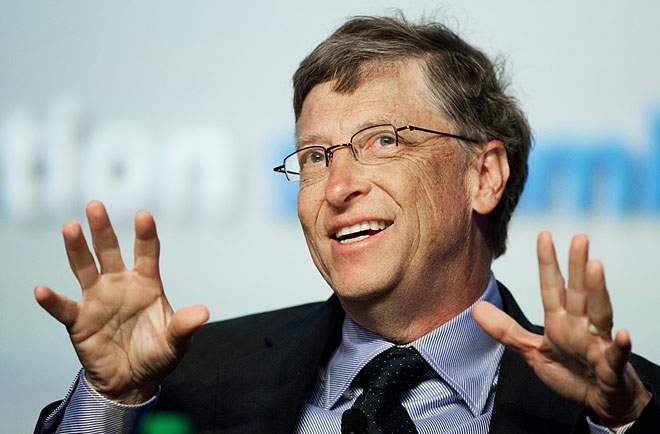
Far from attacking the wealth of the world’s uber rich, the charity should praise the wealthy for their attitude to philanthropy, says Alec Marsh.
News from Oxfam that eight of the world’s richest men, headed by Microsoft founder Bill Gates, have the same wealth as the 3.6 billion people who make up the poorest half of humanity, has drawn shrill headlines. Naturally, the first reaction here at Spear’s to the fact that this ‘magic eight’ of individuals possess some $426 billion is to verify that they’re subscribers of the magazine. (We can’t divulge this on data protection grounds, unfortunately.)
According to Oxfam, Gates, said to be worth $75 billion, is the first of five Americans in the list, demonstrating, not that we needed it, that Uncle Sam still rules the roost. The second richest is Amancio Ortega, Spanish founder of Inditex and owner of fashion chain Zara, is worth $67 billion; third is Warren Buffett, whose net worth is $60.8 billion, followed by the Mexican telecoms magnate Carlos Slim Helu, on $50 billion. Amazon boss Jeff Bezos is fifth in Oxfam’s ‘alternative’ rich list on $45.2 billion, followed by Mark Zuckerberg of Facebook, on $44.6 billion. Then comes Larry Ellison, the co-founder and CEO of Oracle, who is worth $43.6 billion, followed by Michael Bloomberg, who is eight richest and worth $40 billion.
This wealth concentration is up from last year, Oxfam says, when the charity’s researchers said that the top 62 billionaires were worth the same as poorest half the world. New, better data apparently now confirms that the poorest half of the world has even less than we previously thought.
Oxfam, which published the report to coincide with the annual World Economic Forum jamboree at Davos, describes such wealth as ‘beyond grotesque’ and ‘obscene’. ‘The super-rich are fuelling the inequality crisis by dodging taxes, driving down wages and using their power to influence politics,’ it fulminates. Yet it doesn’t mention that many of the of the eight above – notably Slim, Gates, Buffett, Zuckerberg and Bloomberg – are among the most generous philanthropists in the world and have given and pledged many billions of their dollars to good causes. Buffett, famously, has promised to give 99 per cent of his fortune to charity, and through the Giving Pledge (alongside Bill and Melinda Gates) is exhorting all of the richest people in the US to donate the majority of their fortunes to good causes.
Oxfam’s lack of acknowledgement of such philanthropy, as well as its axe-grinding, tends to undermine the magnitude of its broader message. Moreover, pointing out that the wealth of the poorer sections of the world community is growing less swiftly than that of the richest is hardly new. It’s been happening for decades.
Fortunately others, such as the Adam Smith Institute (which points out that the welfare of the poorest has also been rising), have been quick to criticise Oxfam for its highly politicised take on the situation. Alas it’s hardly a new position: to borrow from Churchill (on the difference between socialism and liberalism) the solution lies not in dragging down the wealth of the rich, but in dragging up the poverty of the poor through continued prosperity.






